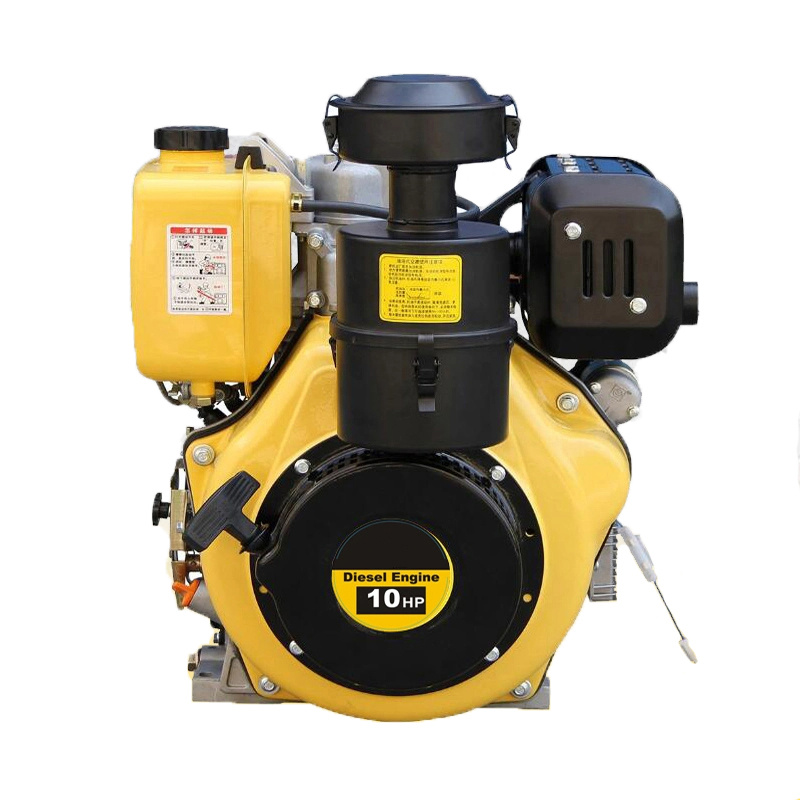Exploring the Benefits of Quality Air Cooled Diesel Engines for Heavy Machinery
Nov 10,2025

Exploring the Benefits of Quality Air Cooled Diesel Engines for Heavy Machinery
Table of Contents
- Introduction to Air Cooled Diesel Engines
- Understanding Air Cooled Engines
- Advantages of Air Cooled Diesel Engines in Heavy Machinery
- 1. Efficiency and Performance
- 2. Durability and Longevity
- 3. Low Maintenance Requirements
- 4. Environmental Impact and Compliance
- Applications of Air Cooled Diesel Engines
- Choosing the Right Air Cooled Diesel Engine
- Frequently Asked Questions
- Conclusion
Introduction to Air Cooled Diesel Engines
In the realm of heavy machinery, the efficiency and reliability of the engines powering these machines are paramount. **Air cooled diesel engines** stand out as a popular choice due to their robust performance and versatility. Unlike their water-cooled counterparts, these engines utilize airflow to dissipate heat, offering significant benefits in various operational environments.
This article delves into the multifaceted advantages of high-quality air cooled diesel engines, emphasizing their role in enhancing productivity and ensuring equipment longevity.
Understanding Air Cooled Engines
Air cooled diesel engines operate on the principle of using ambient air to cool the engine components. This is achieved through strategically designed fins and passages that maximize surface area for effective heat exchange.
In contrast to water-cooled engines, air cooled variants eliminate the need for a complex cooling system, which includes radiators and water pumps. This simplicity not only reduces the weight and complexity of the machinery but also enhances the engine’s operational efficiency.
Advantages of Air Cooled Diesel Engines in Heavy Machinery
1. Efficiency and Performance
Air cooled diesel engines are renowned for their operational efficiency. By utilizing the surrounding air for cooling, these engines maintain optimal operating temperatures, which leads to better fuel combustion. This results in increased power output and reduced fuel consumption, making them a cost-effective solution for heavy machinery.
Moreover, the absence of a water cooling system allows for a more straightforward design, reducing potential points of failure and allowing for higher operational reliability.
2. Durability and Longevity
One of the most compelling reasons to choose air cooled diesel engines for heavy machinery is their **durability**. These engines are designed to withstand harsh operating conditions, making them suitable for a variety of industries, from construction to agriculture.
The rugged design of air cooled engines means they are less susceptible to corrosion and damage from environmental elements, extending their lifespan significantly. Machinery equipped with these engines can often operate longer between repairs and replacements, further enhancing their value.
3. Low Maintenance Requirements
Maintenance is a critical factor in the overall cost of ownership for any machinery. Air cooled diesel engines require less maintenance compared to water cooled engines. Without a complex cooling system, routine maintenance tasks are simplified, leading to less downtime and lower operational costs.
Typically, the key maintenance tasks include regular oil changes and air filter replacements. This ease of maintenance makes air cooled engines particularly appealing for operators looking to minimize downtime and maximize productivity.
4. Environmental Impact and Compliance
As industries move towards more sustainable practices, air cooled diesel engines are proving to be eco-friendly options. These engines often meet stringent emission standards, especially when equipped with modern fuel injection technologies.
Their ability to operate efficiently not only reduces fuel consumption but also minimizes the carbon footprint associated with heavy machinery operations. As a result, businesses can achieve compliance with environmental regulations while benefiting from the operational advantages these engines provide.
Applications of Air Cooled Diesel Engines
Air cooled diesel engines find applications across a wide array of industries, proving their versatility and adaptability.
Construction Machinery: In the construction sector, these engines are commonly used in excavators, bulldozers, and compactors, where reliability and performance are paramount. Their ability to operate in challenging environments makes them ideal for outdoor construction sites.
Agricultural Equipment: Tractors and harvesters equipped with air cooled diesel engines benefit from their low maintenance and durability, ensuring uninterrupted service during critical planting and harvesting seasons.
Mining Equipment: In the mining industry, where machinery often operates in extreme conditions, the rugged reliability of air cooled engines ensures that operations can continue without frequent breakdowns.
Choosing the Right Air Cooled Diesel Engine
Selecting the appropriate air cooled diesel engine for your heavy machinery involves several considerations.
Power Requirements: Assess the power needs of your machinery to choose an engine with adequate horsepower and torque.
Operating Environment: Consider the conditions in which the machinery will operate; some engines are better suited for extreme temperatures or dusty environments.
Fuel Efficiency: Look for engines designed with modern fuel injection systems to optimize fuel consumption and emissions.
Service Availability: Ensure that parts and service support are readily available in your region to minimize downtime.
Frequently Asked Questions
1. What is the lifespan of an air cooled diesel engine?
The lifespan can vary, but with proper maintenance, air cooled diesel engines can last for thousands of hours, often exceeding 10,000 hours of operation.
2. Are air cooled diesel engines more fuel-efficient than water cooled engines?
Generally, yes. Air cooled engines often have better fuel combustion, which leads to higher energy efficiency and lower fuel consumption.
3. Can air cooled diesel engines be used in all weather conditions?
While they perform well in a variety of conditions, extreme temperatures—both hot and cold—may affect performance, necessitating careful monitoring.
4. What are the common maintenance requirements for air cooled diesel engines?
Routine maintenance includes oil changes, air filter replacements, and inspections of the engine fins and exhaust systems to ensure optimal function.
5. Are air cooled diesel engines more prone to overheating?
No, they are designed to use airflow effectively to maintain optimal operating temperatures, generally reducing the risk of overheating compared to poorly maintained water-cooled systems.
Conclusion
In summary, **quality air cooled diesel engines** offer substantial benefits for heavy machinery applications, including exceptional efficiency, durability, and low maintenance requirements. These engines not only meet the rigorous demands of industries such as construction, agriculture, and mining, but they also contribute positively to environmental sustainability.
By understanding the advantages and applications of air cooled diesel engines, businesses can make informed decisions that enhance operational efficiency and reduce costs. As the industry continues to evolve, these engines will remain a vital component in heavy machinery, driving the future of industrial operations.
PREVIOUS:
Contact Us
E-mail :
admin@tengkaengine.com
Phone/WhatsApp:
+86-13731259509
Address:
Room 301, Block B, Xiuyu Commercial Building, Fubao, 77 Fuxing West Road, Baoding City, Hebei Province, China




